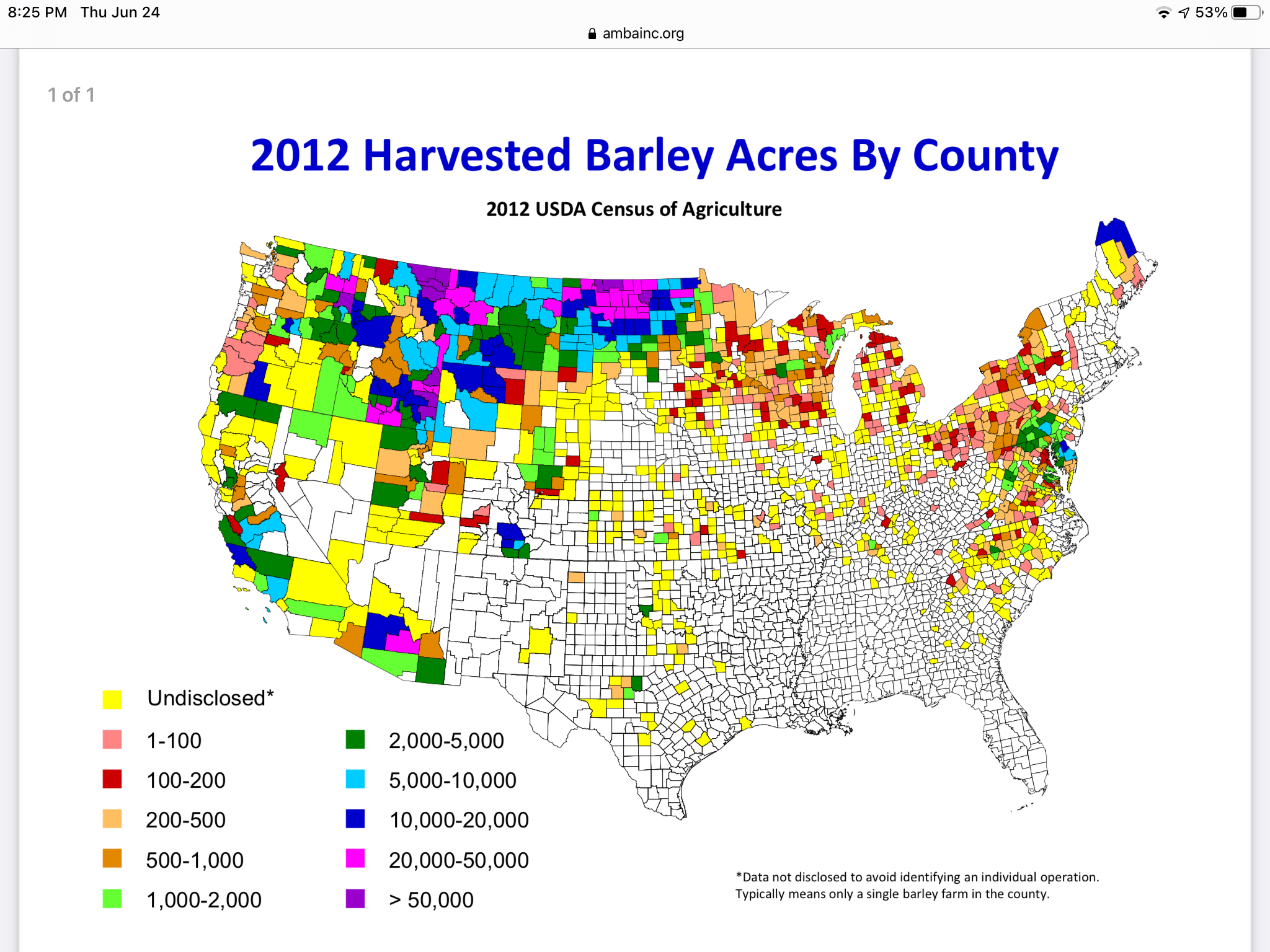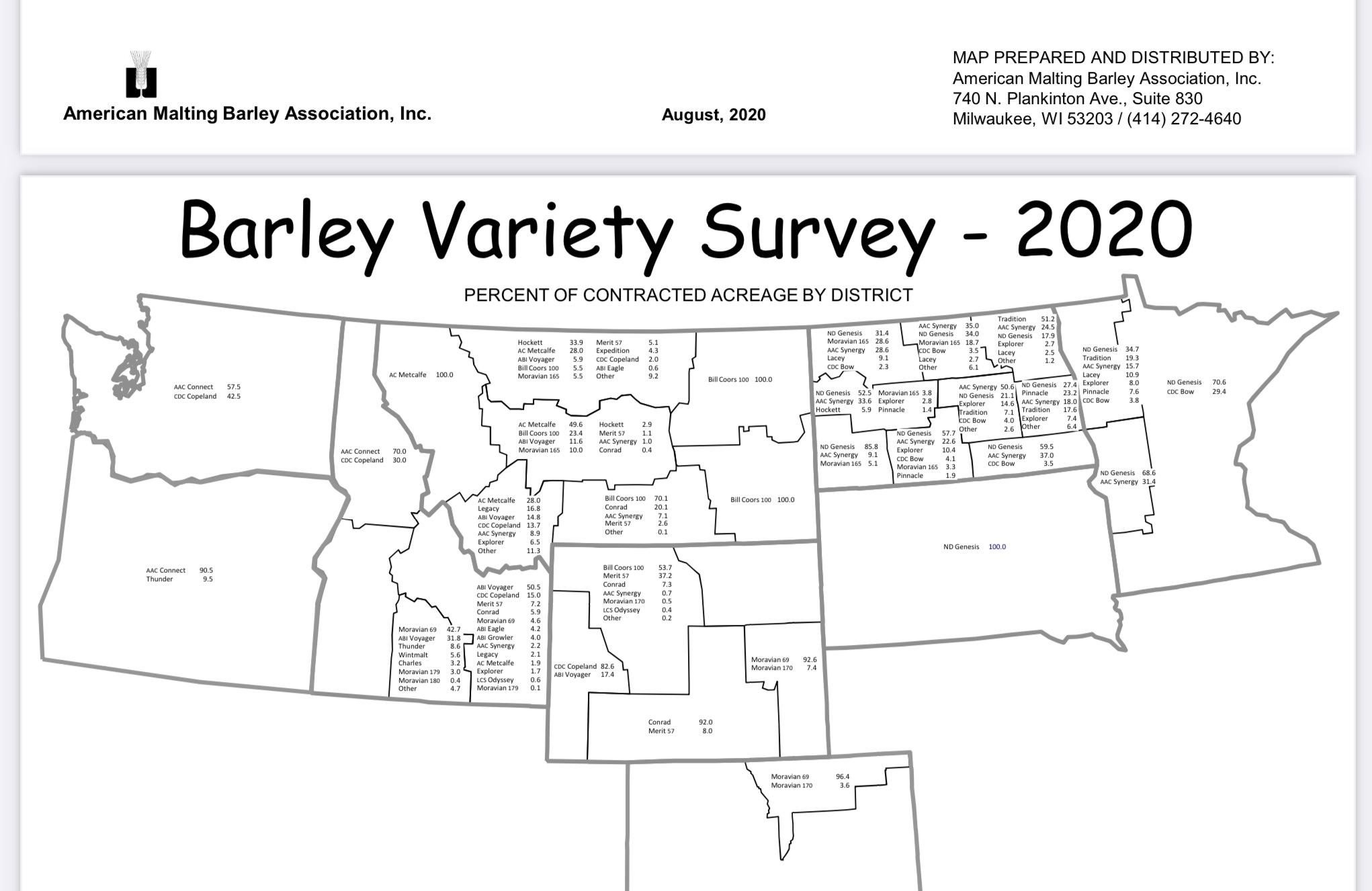Paging
@grampamark. He's in the grain-production business. He might have some thoughts on this market.
You rang?
AB has contracted with barley growers in a particular region of MT, specifically the high plains just East of the Rocky Mountain front, for decades. I haven’t heard any reports this year, but in the last 2 years, the number of contracted acres was cut 25% in each year. So, they’re only buying half of what they were a couple of years ago, at least on a contract basis. Supposedly they’re using more extract (rice syrup) and less barley. Whether related to InBev’s reduction in acres, or not, the price of barley has gone into the toilet in the last 2 years. This spring there were no malt contracts being offered by any of the grain merchandisers and the spot (uncontracted) market price for malting barley is the same as feed barley, about $4.50 per cwt (hundred pounds). That’s about half of what would make growing malt barley an attractive alternative to other crops.
As noted above, barley is a minor crop, but that’s only part of the story. The production numbers are for all barley, not just malt barley. It’s hard to determine just how much barley makes it‘s way into beer because the number of contracted acres is proprietary and the brewers and maltsters don’t generally release that info. The numbers which are available come from the planted acreage and production reports which producers who participate in farm programs submit to USDA each year. On those reports, barley is barley; there is no info on usage. I’ll attach a couple of maps, courtesy of the American Malting Barley Association, one which shows the distribution of all barley production, and one which shows the percentage of contracted production of the various varieties in the region which produces the bulk of the barley in the US. It’s pretty obvious that most of the barley is grown in just a few states.
Of course, there are a lot of other fermentables besides barley, and several of those are used liberally in the commercial brewing processes. Total beer production in the US last year was reported, by the Brewers Association, as just over 186MM barrels or about 5.7 billion gallons. Using a rough number of 2lbs of fermentables per gallon of 1.050 beer that would require about 11.5 billion lbs of fermentables. All barley production, in pounds, would be a bit under 8 billion lbs, so that gives some idea of how much corn, rice, extract, etc, gets used in the beer business.
As far as InBev trying to corner the barley market-well, enjoy the conspiracy theories. Monsanto? They don’t exist any more; sold to Bayer AG in 2018. When they did exist, they discovered that, unlike corn, soybeans, alfalfa, and the various other crops which were genetically modified to be glyphosate resistant, cereals like wheat and barley are much more complex, genetically, and attempts to create GMO varieties of those crops were not successful. InBev just wants to make lots of beer, as cheaply as possible, with as much margin as possible. The apparent move towards more adjuncts and extracts indicates, to me, that they’ve figured out how to make cheap swill even more cheaply, and to hell with the barley growers who depended on those contract acres for the last 3 generations.
Aren’t you glad
@MaxStout asked?







































![Craft A Brew - Safale BE-256 Yeast - Fermentis - Belgian Ale Dry Yeast - For Belgian & Strong Ales - Ingredients for Home Brewing - Beer Making Supplies - [3 Pack]](https://m.media-amazon.com/images/I/51bcKEwQmWL._SL500_.jpg)
























